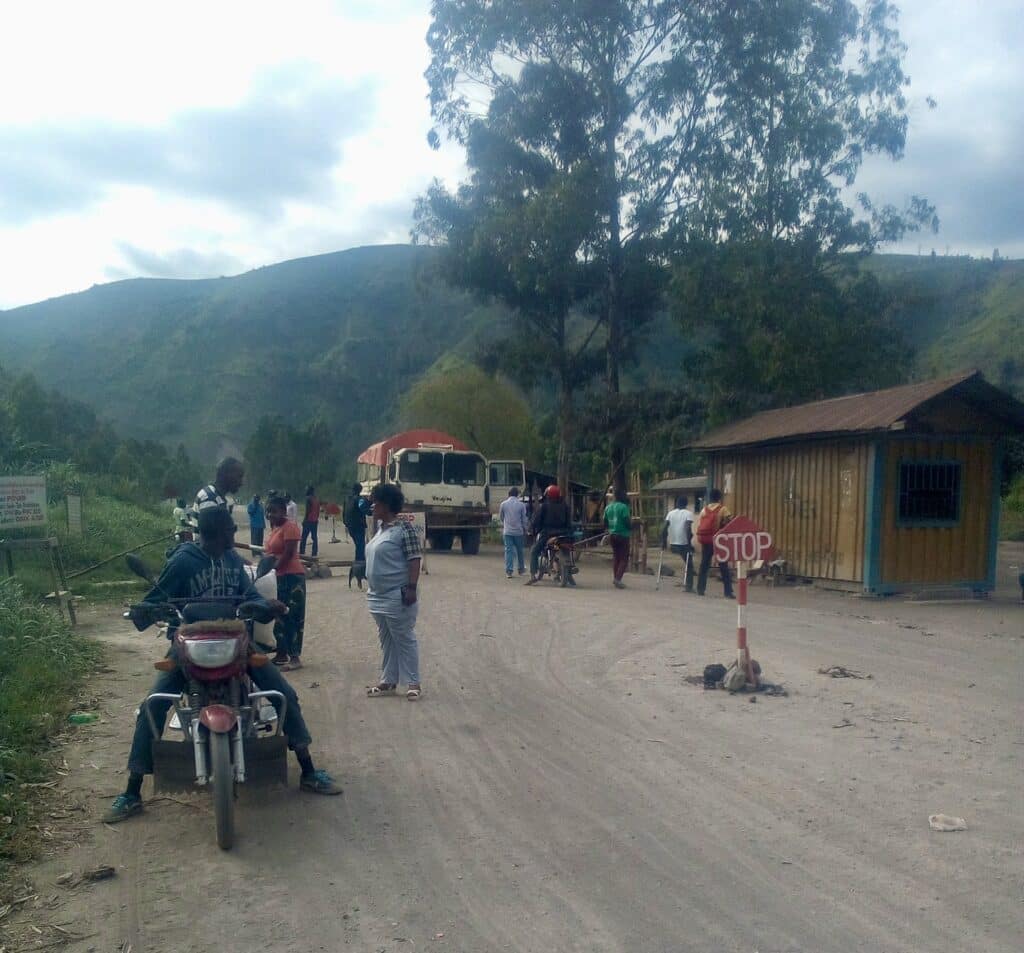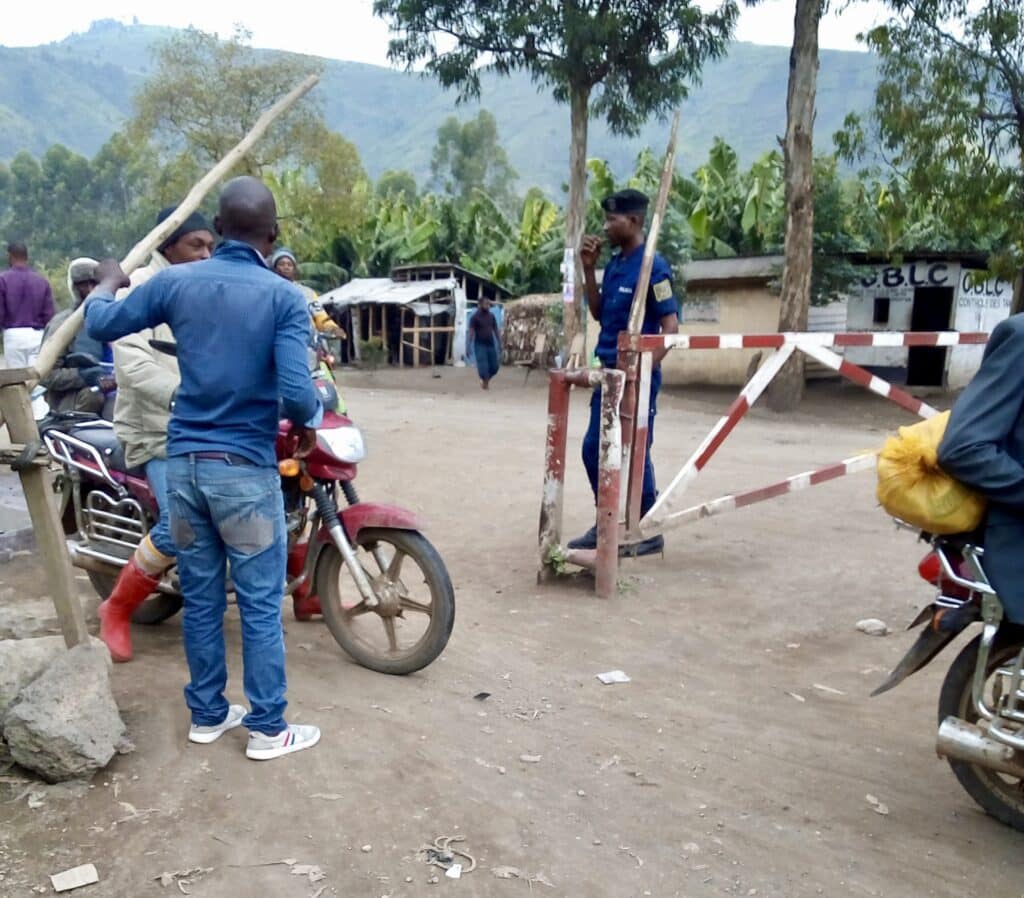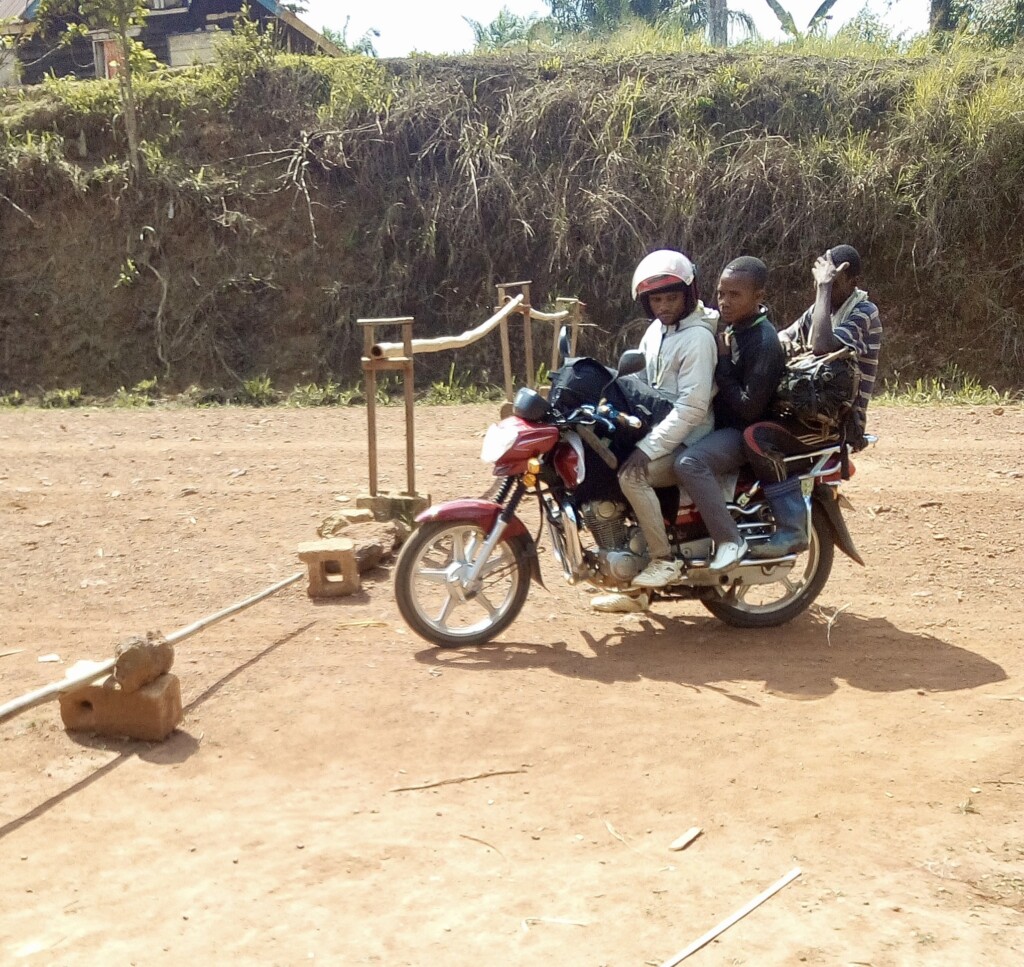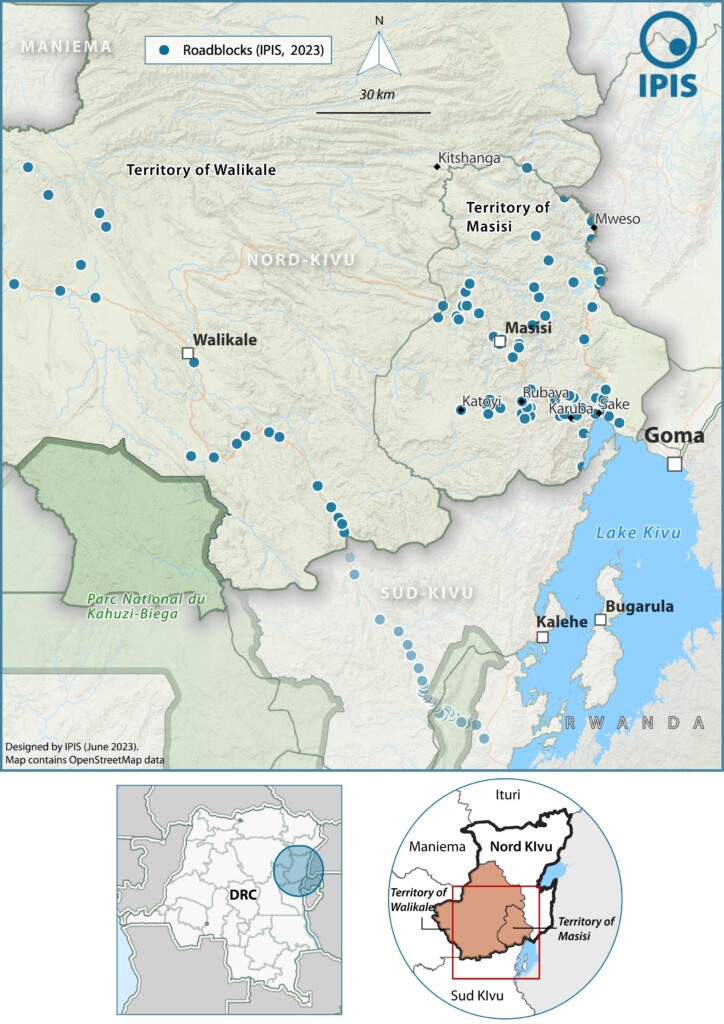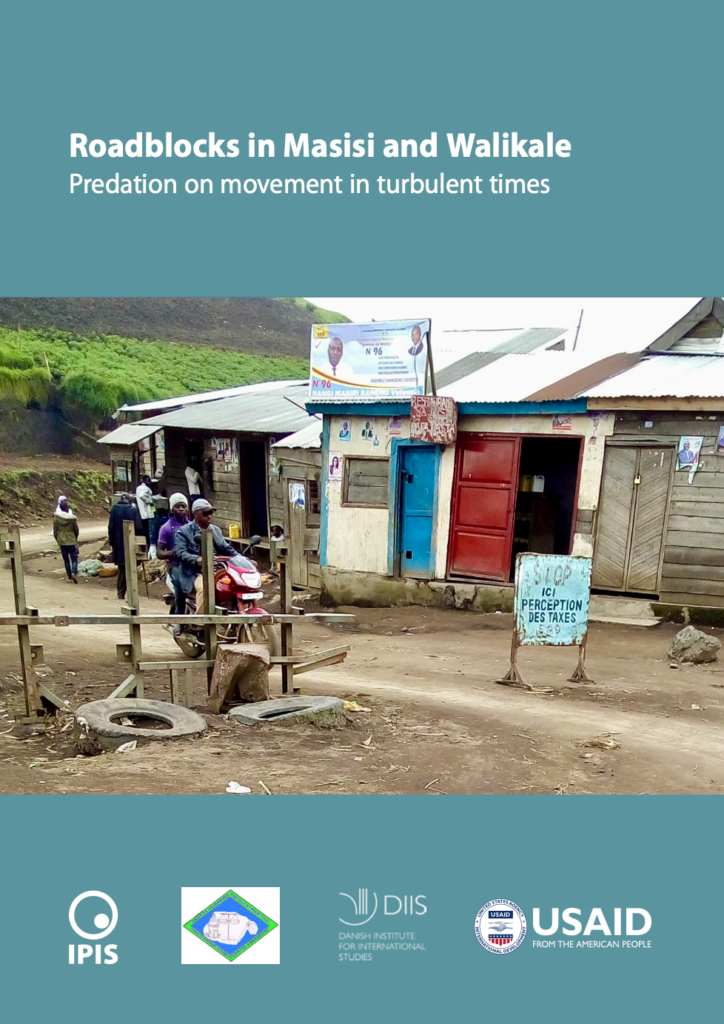While minerals have centered in research on conflict financing in the Democratic Republic of the Congo, armed actors often rely on alternative sources of revenue to finance their struggles. Among these are the operation of roadblocks. In this report, produced together with ASSODIP and the Danish Institute for International Studies, IPIS studies the linkage between roadblocks and the local artisanal and small-scale mining (ASM) sector in the Masisi and Walikale territories of North Kivu, and their impact on local security.
During its study, IPIS collected data on the location, nature, and operators of over 110 roadblocks in the territories of Masisi and Walikale. While roadblocks can fulfill a variety of functions including traffic control, security, facilitating legal tax collection, they are often erected without an official mandate. Thus, many roadblocks often exist as a mechanism of illegal taxation and revenue generation for their operators. The study found that it is not uncommon for roadblocks to change hands frequently, meaning one roadblock can be manned by various operators over a short span of time.
The report found that, of these operators, the Congolese army appears to be the most prevalent. Controlling 44% of all roadblocks surveyed, it is followed in terms of control by non-state armed groups, including ‘Wazalendo’, chieftaincies and local authorities, and the police. Compared to an earlier IPIS study of roadblocks in North Kivu from 2017, the overall share of non-state armed group control over roadblocks has increased by over 117%. This increase appears tied to security developments in the region, including: the fragmentation of armed groups, the state of siege and the counter-offensive against M23.
IPIS analyzed the link between roadblocks and mineral trade in both territories. Half of all roadblocks mapped by the study taxed minerals or mineral traders, while 1/6 of roadblocks surveyed were established solely to tax ASM or mineral trading. In fact, various important sector actors, such as cooperatives, the mining police, and concession holders all appear to be involved, to some extent, in operating roadblocks. These often monitor the flow of traffic in/out of mine sites, and tax minerals directly or indirectly.
However, roadblocks have critical impacts beyond the mining sector. These include restricting the freedom of movement of the local population and traders, a mixed security impact balancing a constant threat of violence and a greater perception of security among locals. Additionally, roadblock taxes on market goods and access can become incorporated into local pricing, precipitating a sharp rise in the price of local commodities. Importantly, 70% of the roadblocks surveyed taxed agricultural goods, meaning they surpass minerals as the most taxed good at roadblocks. This points to broader patterns of conflict-financing in the region which go beyond conflict-financing through minerals.
In summary, the study has found that compared to 2017, control over North Kivu’s transport networks has become increasingly fragmented and militarized. It also showed how roadblocks form a key part of the political economy of conflict in North Kivu, and that despite their frequent distance from mining sites, responsible sourcing schemes should understand them as a form of armed interference with minerals in transit. Finally, it also raised the need for further research into the exact impacts of roadblocks on the livelihoods of the most vulnerable in North Kivu, as well as on the operation of international aid organizations in the region.
